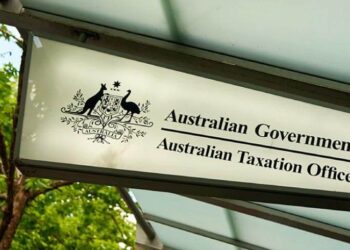The PBR (1052328167868) dealt with the tax treatment for a beneficiary who was a dependent on the deceased just before their death.
The facts of the case state the beneficiary was the adult child of the deceased person who was over 18 at the time of their parent’s passing. The beneficiary received a death benefit payment from the deceased’s estate and subsequently their nominated tax agent applied for a private ruling for consideration that the beneficiary was financially dependent on the deceased.
Evidence submitted to the commissioner for consideration included a trust return for the deceased’s estate showing distribution to the taxpayer – a death benefit superannuation lump. It also included a statement detailing the history of the beneficiary that stated the beneficiary had lost their partner to terminal illness, fell into a period of depression and was evicted from their rental property before moving back in with the deceased.
The evidence stated the deceased supported the beneficiary financially and emotionally during this time and purchased a separate property for the beneficiary to live in. No rent was charged to the beneficiary for the use of the property.
Furthermore, a partner of the beneficiary also moved into the property. For a number of years the family was receiving Centrelink payments before the beneficiary’s partner gained employment and the beneficiary remained at home as caregiver for their child.
The ruling stated that the beneficiary is not a death benefits dependant of the deceased as defined in section 302-195 of the Income Tax Assessment Act 1997. It added that as the beneficiary is the adult child of the deceased, paragraphs 302-195(1)(a) and (b) of the ITAA 1997 are not applicable.
“The definition of death benefits dependant does not stipulate the nature or degree of dependency required to be a dependant of the deceased person in paragraph 302-195(1)(d) of the ITAA 1997. However, it is generally accepted that this paragraph refers to financial dependence,” it said.
Furthermore, the ruling continued there are a number of case law decisions that specify what is required to establish financial dependency. Specifically, the definition of dependency was addressed and interpreted in the High Court case of Kauri Timber Co (Tasmania) Pty Ltd v. Reeman (1973) 47 ALIR 184 (Kauri Timber).
In that ruling, it was stated: “the principle underlying these authorities is the actual fact of dependency or reliance on the earnings of another for support that is the test.”
Additionally, the ruling noted that dependency involves more than the mere receipt of support, but also reliance on it which was affirmed in Griffiths v Westernhagen [2008] NSWSC 851.
“For a relationship of dependency to be established there must be more than the mere giving of money. Rather there must be a relationship where one party relied on the other for what is required for their ordinary living,” the ruling said.
The commissioner noted in this case that bank statements provided for the beneficiary, show that the beneficiary received a total of four transfers from the deceased over four years.
“There were no regular payments and no documentation was supplied to support continuous payment of living expenses,” it said.
Moreover, the insurance statements provided show that the property was listed as having the deceased as the owner/occupier and that the deceased was paying for the insurance to cover the investment.
While it is accepted that the beneficiary was living at the property that the deceased purchased and not paying any board, insurance, or rates on the property, it is not accepted that the beneficiary was financially dependent on the deceased.
“The beneficiary had sufficient income to support themselves financially and was not financially dependent on the deceased to pay for their ordinary living expenses,” the ruling said.
“Based on the evidence provided, the commissioner is not satisfied that the beneficiary was a person who was substantially reliant on regular and continuous financial support from the deceased for his ordinary living expenses.”



Would need more specifics but the provision of accommodation sounds like a reasonable amount of dependency. if they were on Centrelink could they have afforded rent plus living expenses. I doubt it. Surely this is worthy of an AAT appeal or whatever they call it now.